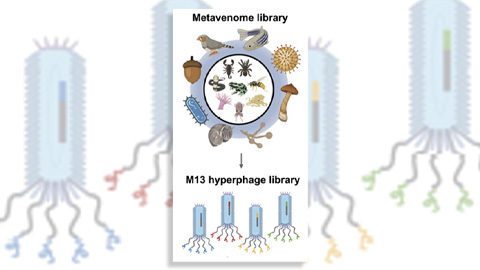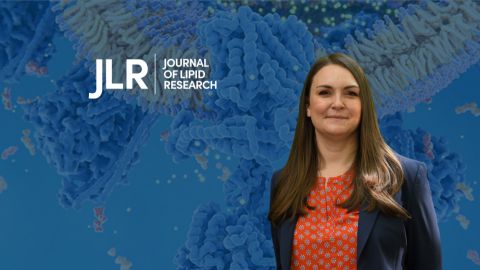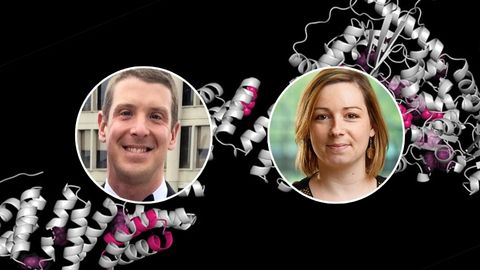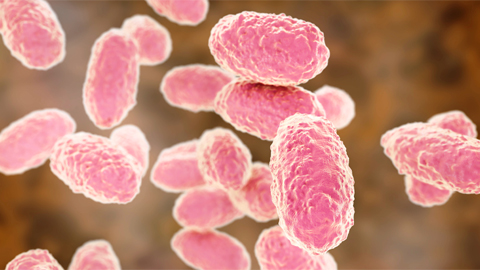Assessing the risk of excess folic acid intake
It is well established that folic acid supplementation can significantly reduce the risk of birth defects, including neural tube defects like spina bifida, the most common birth defect of the central nervous system and the second most common of all structural birth defects. More than 80 nations, including the U.S. 25 years ago, have established mandated folic acid food fortification programs, which have been successful.
“However, there is a lack of research on whether excessive folic acid intake has the potential to harm human beings,” said co-corresponding author, Dr. Richard H. Finnell, William T. Butler, M.D., Distinguished Chair Professor in the Center for Precision Environmental Health and the departments of molecular and cellular biology, molecular and human genetics and medicine at Baylor College of Medicine.

There are reports of adverse effects associated with high folate intake in humans. In this study published in the journal Cell Discovery, Finnell and his colleagues investigated in an animal model the potential effect of folic acid supplementation on DNA mutation rates and other genetic modifications such as whole genome methylation, which can change how much of any given gene product gets expressed in cells.
The animals received one of three folic-acid-supplemented diets: folic acid low, folic acid control and folic acid high. “Compared to the mutation frequency of the folic acid-control diet group, that of the folic acid-low diet group increased two-fold and the folic acid-high diet group increased 1.8 fold,” Finnell said.
The researchers found that DNA repair genes were significantly hypermethylated in the folic acid-high diet, suggesting that excess folic acid supplementation may affect the mutation rate by reducing the expression of DNA repair genes and consequently impairing DNA repair activity. Understanding these mechanisms requires further investigation.
“The effects of high- or low-folic acid diets should be confirmed in human population in future studies,” Finnell said. “Our data supports that folic acid supplementation should be restricted to an ideal benefit range. What we have here is a “Goldilocks Effect”: Too little or too much of a good thing (folic acid) may not be such a good thing.”
This article first appeared on the Baylor College of Medicine news site. Read the original.
Enjoy reading ASBMB Today?
Become a member to receive the print edition four times a year and the digital edition monthly.
Learn moreGet the latest from ASBMB Today
Enter your email address, and we’ll send you a weekly email with recent articles, interviews and more.
Latest in Science
Science highlights or most popular articles

Innovative platform empowers scientists to transform venoms into therapeutics
Scientists combine phage display and a “metavenome” library to discover new drugs that bind clinically relevant human cell receptors. Read about this recent Molecular & Cellular Proteomics paper.

Meet Shannon Reilly
The JLR junior associate editor discusses the role of adipocytes in obesity at Weill Cornell Medical School.

Meet Donita Brady
Donita Brady is an associate professor of cancer biology and an associate editor of the Journal of Biological Chemistry, who studies metalloallostery in cancer.

Glyco get-together exploring health and disease
Meet the co-chairs of the 2025 ASBMB meeting on O-GlcNAcylation to be held July 10–13, 2025, in Durham, North Carolina. Learn about the latest in the field and meet families affected by diseases associated with this pathway.

Targeting toxins to treat whooping cough
Scientists find that liver protein inhibits of pertussis toxin, offering a potential new treatment for bacterial respiratory disease. Read more about this recent study from the Journal of Biological Chemistry.

Elusive zebrafish enzyme in lipid secretion
Scientists discover that triacylglycerol synthesis enzyme drives lipoproteins secretion rather than lipid droplet storage. Read more about this recent study from the Journal of Biological Chemistry.

